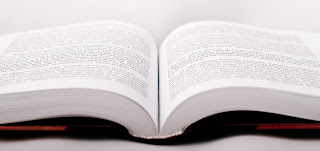Understanding the public taste in literature happened the same way I understood why some people who were raised in religious homes become atheists as soon as they leave, and why single Saudi men act like the horniest rabbits as soon as they land in Jakarta, and why Indonesians are big fans of religion instead of, ahem, practicality.
I'm also very lazy. So in my laziness I rely on the closest thing available in my box of thoughts: Psychology.
I'm also very lazy. So in my laziness I rely on the closest thing available in my box of thoughts: Psychology.
Erik Erikson's Psychosocial Stages
What does a person generally think about during the different stages of development? My favorite answer to this question has always been loosely based on a generalized format of Erik Erikson's psychosocial stages of development. That makes me a bad student of psychology but it simplifies my life*.
- Infancy (0-3 years): Is the world a safe, loving place or not? When is lunch? Ooh, a toe!
- Childhood (4-12 years): Play, comradeship, learning, independence, etc. You remember.
- Adolescence (13-18 years): Identity, conformity, puberty, abstraction. Who am I? Why am I here? How do I look?
- Young Adulthood (19-40 years): Intimacy vs. Isolation: Security, love, work, starting a family, knowing self reflected by society.
- Middle Adulthood (41-65 years): Establish career, settle down, giving back to society, taking pride in self and society.
- Late adulthood (65 years and beyond): What was the point? Was it worthwhile?
Maslow's Hierarchy of Needs
This is my favorite theory in understanding human behavior for its sheer simplicity and recyclable universality. You can stretch it sideways by attaching other elements of well-being on the hierarchy, but the core idea remains the same whether applied on a single individual or the general population. Whether applied on a cliodynamics of religion or a civilization or the development of taste for caviar.
The Hierarchy of Needs: - Physiological
- Safety
- Intimacy/Love
- Esteem
- Self-Actualization
Aligning the psychosocial stages with the hierarchy of needs
Psychosocial Stage
|
Hierarchy of Needs
|
Infant mind
|
Physiological
|
Childlike mind
|
Safety
|
Adolescent mind
|
Love
|
Adult mind
|
Esteem
|
Mature mind
|
Self-actualization
|
Imagine the psychosocial stages and hierarchy of as tool to explain the chronological development of taste in literature...
...and we have shelves upon shelves of genre fiction, of self-help books, variations of "How to be rich in 4 hours or less", feeding the mind of the poorly intellectual.
Psychosocial Stage
|
Mental Needs
|
Literature Needs
|
Infant mind
|
Physiological
|
Coloring books, cook books
|
Childlike mind
|
Safety
|
Comic books, Children's Literature
|
Adolescent mind
|
Love
|
Genre and Mainstream Fiction
|
Adult mind
|
Esteem
|
Niche and Literary fiction
|
Mature mind
|
Self-actualization
|
Religion, Spirituality
|
Some people never grow up. A lot of folks have their intellectual needs satisfied at the childlike or adolescent stage of thinking. And some others swing comfortably between spiritual books and drawing books.
In my snobbish defense, I still read everything, including comic and coloring books. And I have been entertained by plenty of childlike books. But because I am a snob, I have to read things that break my brain with variety, otherwise I'll get bored.
Adding up the numbers and nuggets
Just because it's a book, doesn't that mean that reading it is going to make you smarter. The general population is comfortable to never evolve their minds higher than adolescent thinking. Adolescence coincides with the time people leave school and never be forced to read another book again.
Then again, just because the book you're reading is not going to make your smarter, it's still better than never to read again, considering these statistics:
- Total percent of U.S. high school graduates who will never read a book after high school: 33%
- Total percentage of college students who will never read another book after they graduate: 42%
(Source: Reading Statistics)
That is just the American statistics. The statistics from the same country that produces dedicated ebook readers and controls the global tastes in war and peace and movies.
I can agree if someone said that the US statistics does not represent the rest of the world. I can agree that European and Asian readership would exceed the American by an intelligent knot. But comparing the American readership to Indonesian and Saudi readership is reasonable.That is just the American statistics. The statistics from the same country that produces dedicated ebook readers and controls the global tastes in war and peace and movies.
This article makes me a intellectual snob and writer
On a global perspective, books like Twilight, 50 Shades of Grey, the Da Vinci Code, are commercially successful because the global population likes that kind of entertainment.
I take grand liberty in bashing books and the Saudi, US and Indonesian readership because they have so far successfully stunted my motivation to write. Who cares about my intellectual snobbery? Would my snobbery improve the Saudi and Indonesian taste in literature? Fat chance.
Which makes the cliodynamics of literature and book industry, the evolution of mainstrem taste, all the more interesting to study. You still want to know when the first Indonesian or Saudi is going to win the Nobel Prize for literature, right? In 300 years?
Next time.
Next time.
* In Erikson's theory, there are three psychosocial stages between the ages 4 until 12 (Autonomy vs. Shame & Doubt, Initiative vs. Guilt, Industry vs. Inferiority). For the sake of this article, I took the liberty to bunch up those three stages into one and call it the Childhood Stage under the assumption that my readers would still remember what they used to think about in those ages.


